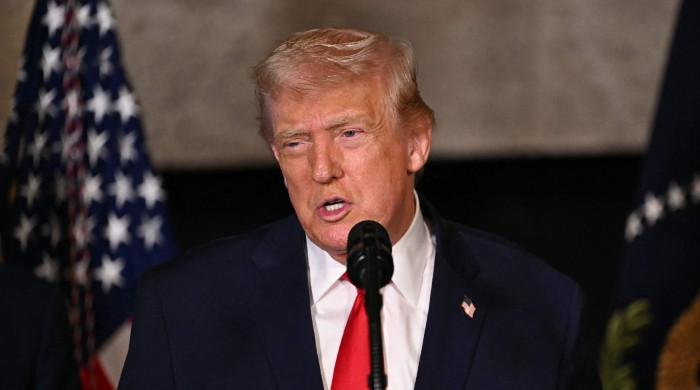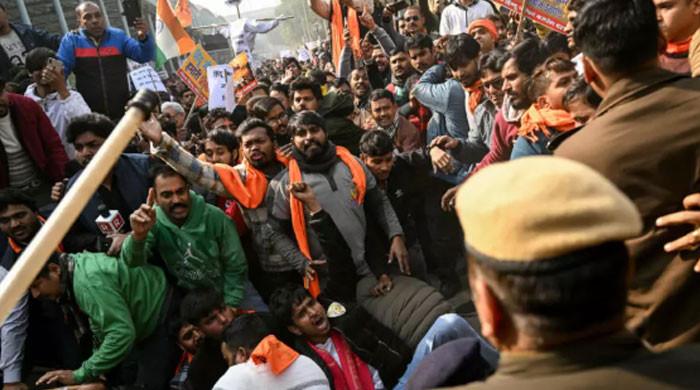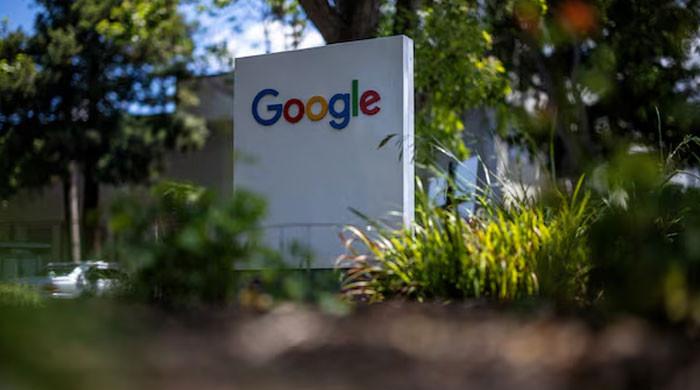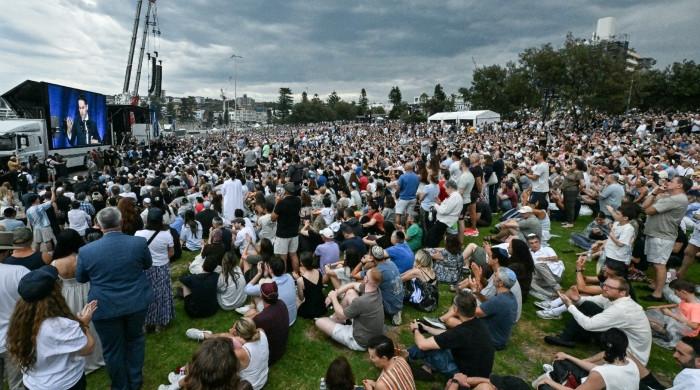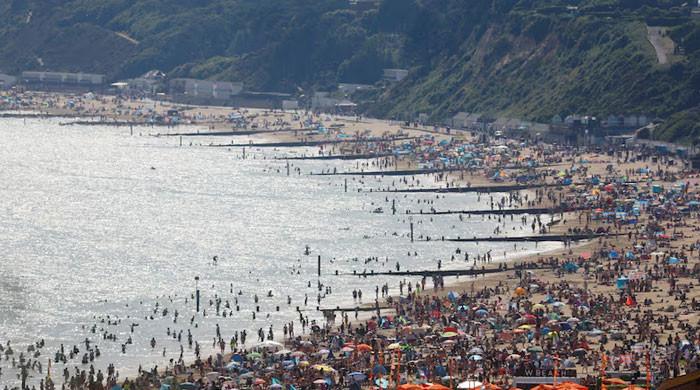Turkey votes as Erdogan eyes reinforced powers
ISTANBUL: Turkey went to the polls Sunday in a closely-fought election that will determine whether President Recep Tayyip Erdogan can further tighten his grip on Turkey.The legislative election is...
June 07, 2015
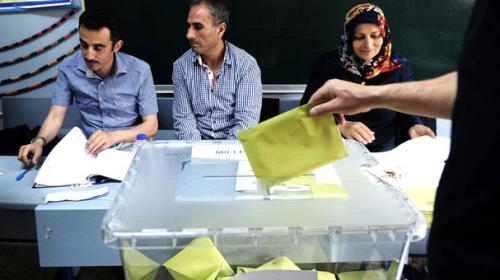
The legislative election is taking place under the shadow of violence after two people were killed and dozens more wounded in an attack on a rally of the pro-Kurdish People’s Democratic Party (HDP) in the southeastern city of Diyarbakir on Friday.
Ballot stations opened at 0500 GMT and will close at 1400 GMT, with over 53.7 million Turks eligible to vote. AFP correspondents reported a brisk morning turnout.
Opinion polls predict that the ruling Justice and Development Party (AKP), co-founded by Erdogan, will again win the most votes, but its share could be sharply down on the almost 50 percent it gained in the last such vote in 2011.
Turkey’s economy is no longer firing on all cylinders, with growth slipping under three percent and unemployment ticking up.
Concern is also growing over Erdogan’s perceived authoritarian tendencies.
Since his election as president in 2014, after 11 years as prime minister, there has been an upsurge in cases against journalists and other members of the public accused of insulting him.
´My trust waned´
Erdogan wants the AKP to win a two-thirds majority of seats, which would allow him to push through a new constitution to switch Turkey from a parliamentary to a presidential system.
Such a system would enshrine the head of state as number one.
He argues that this would be little different from the system in democracies such as France and Brazil and that changing the current constitution, born out of a 1980 military coup, is long overdue.
Opponents however fear it could mark the start of one-man rule.
The opposition HDP, expected to come fourth, could scuttle Erdogan’s plans if it wins over 10 percent of the vote and surpasses Turkey’s notoriously harsh threshold for sending MPs to parliament.
A strong showing from the second-ranked secular Republican People’s Party (CHP) and third-placed Nationalist Movement Party (MHP) could even force the AKP to form a coalition to stay in power for the first time since it came to office in 2002.
"I voted for the AKP in previous elections because they did a good job. But my trust in them has waned," said Murat Sefagil, 42, an Istanbul fruit vendor, saying he would vote for the CHP.
But Mehmet Kose, 50, a school janitor said: "We're connected with our hearts to the AKP. I voted for them again this year because I want Turkey to be ruled by a presidential system."
´Too close to call´
The attack on the HDP in Diyarbakir, caused by a bomb stuffed with ball bearings, was the latest against the party in the campaign, as it tries to break into mainstream Turkish politics.
Over 400,000 members of the police and gendarmerie have been deployed across Turkey to ensure security, media reports said.
The election campaign has been hugely divisive, with Erdogan lashing out at enemies in all directions, including several foreign newspapers like Britain's The Guardian and the New York Times, which he told to "know your place".
Erdogan's heavy involvement in the campaign is itself controversial, given that as head of state he is required to keep an equal distance from all parties. But he has made no secret of his favour for the AKP.
He concentrated his fiercest attacks however on the charismatic leader of the HDP, Selahattin Demirtas, belittling him as a "pretty boy" who is merely a front for Kurdistan Workers Party (PKK) separatist militants.
Demirtas has himself acknowledged that the election is on a "knife-edge", with the HDP's share of the vote hovering just above or below 10 percent.
"I am not Kurdish but I voted for the HDP to have a fairer parliament and make sure the AKP obtains less seats," said Ilker Sorgun, 27 as he cast his vote in Ankara.
The CHP meanwhile has sought to play on the perceived excesses of the ruling party, even accusing Erdogan of having golden toilet seats in his new presidential palace in Ankara.
The election is also a test for Prime Minister Ahmet Davutoglu, the former foreign minister who took over the reins of the AKP when Erdogan became president but lacks his charisma.
"The final result is too close to call, as small, last-minute shifts in electoral preferences could make all the difference," said Sinan Ulgen and Marc Pierini, visiting scholars at Carnegie Europe in a report on the elections.




